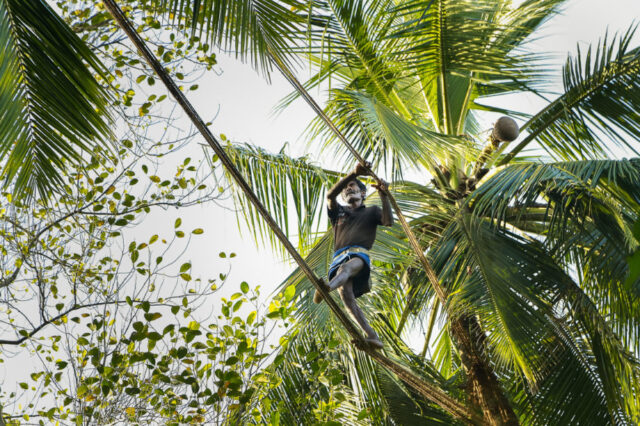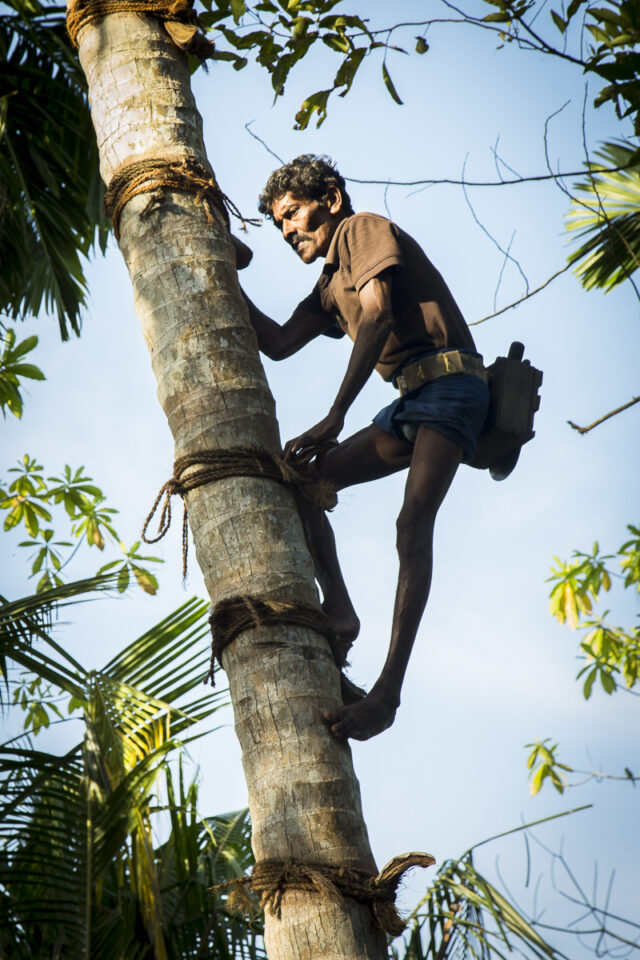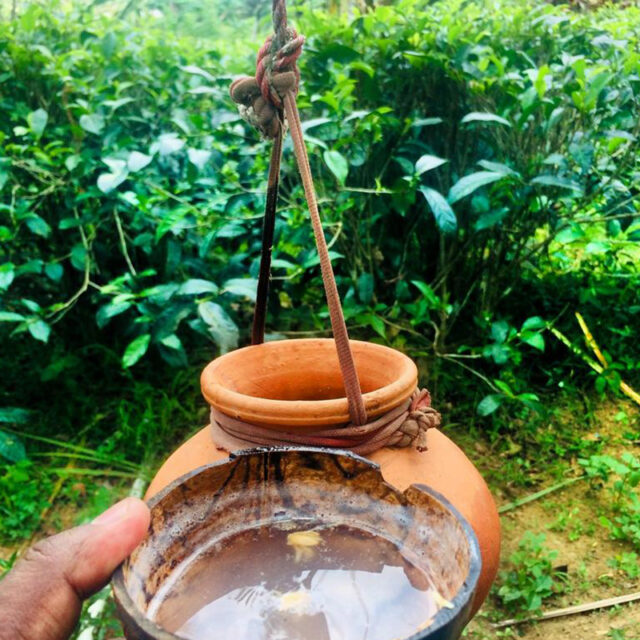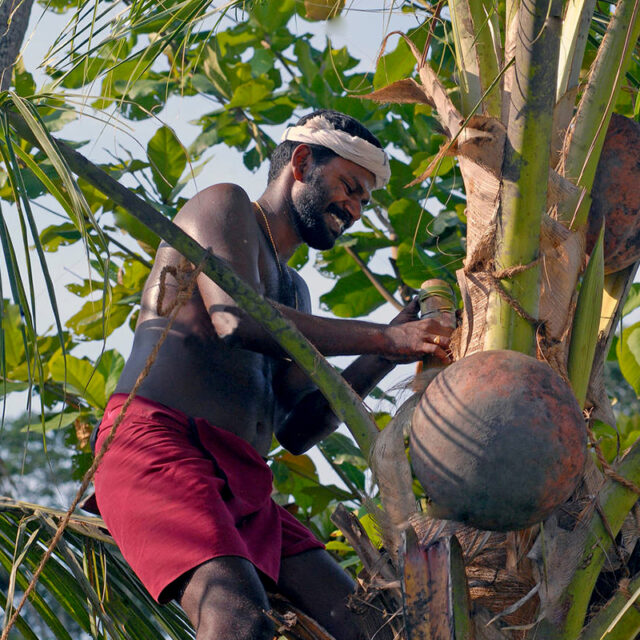Sri Lanka’s Toddy tapping
The process of making toddy, an alcoholic beverage, begins at the top of a coconut tree, where a toddy tapper climbs to gather the sap. Toddy tappers face danger as they work, walking tightropes between trees. That danger is just one reason why fewer people than ever before are going into the work.

Before he climbs a coconut tree, honors the tools of his trade: a heavy mallet made from the pith of a tamarind tree and a sharp, curved knife that he tucks into a basket that is strapped around his thin waist.
He also worships the coconut tree, clasping both hands together in prayer just before he pulls himself up its trunk. The prayer is for safety for what’s about to happen—“a perilous journey in the sky,” he says.

Gamini is wiry. His face shows grit, determination. His job takes him 50 feet into the air, to the tips of the willowy coconut trees that dot his compound. A tightrope connects the trees, and Upali briskly moves across it, agile as a circus performer, nearly skipping between the trees. When he finds coconut flower stalks, he steadies himself between the tree’s fronds and slices the stalks open. Sap, known as toddy, oozes from the incisions and drips into clay pots.
He does all of this in the late evening.
At dawn, he scales the trees again and lowers the pots to his helper, who stands at ground level. The helper pours out the toddy and sends the pot back up.
The job is dangerous. The ropes are slippery and decay quickly. The wind sends them swinging. Wasps swarm at the treetops, and Upali sets a piece of paper ablaze to chase them away.

Fresh toddy ferments quickly. Within just a few hours, it becomes an alcoholic drink and as soon as 12 hours after collection it ferments into a vinegar that is used for pickles, chutneys and meats. Cooked, it becomes treacle, a sweet, molasses-type syrup that is used around Sinhala New Year to make sweetmeats and jaggery.
Sri Lanka’s coconut trees have for millennia been tapped for these uses, mostly by people who are from lower castes. But fewer people are doing the work now because it’s so dangerous. At the same time, a shortage of coconut trees and a demand for their products have led to adulterated toddy that is, in some cases, dangerous to consume. Even so, that adulteration—and the resulting increase in toddy, treacle and other products, even when low-quality—has pushed some willing toddy tappers out of the industry. Low pay and increasing licensing fees at toddy bottling plants are driving others away from the job their forefathers did. Exact numbers aren’t available, but people in communities where toddy tapping has been practiced say few people do it now.





